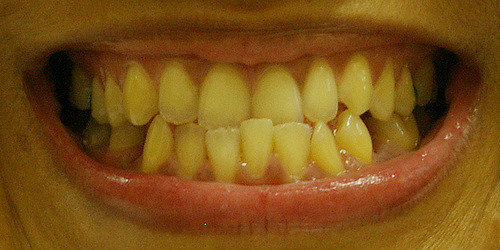<p style="text-align: justify;">Many people wake up in the morning with painful teeth and a sore jaw. They wonder what could be wrong to leave them so miserable. The cause, most often, is bruxism, which more commonly known as grinding your teeth. Bruxism can be caused by anything from stress or anxiety to an abnormal bite or missing teeth. Your bruxism can also get worse because of temporomandibular joint syndrome, which is more commonly known as TMJ. Regardless of the cause, there are things you do to decrease the amount that you grind your teeth or eliminate the grinding altogether.</p>
<h2 style="text-align: justify;">Reduce Your Stress</h2>
<p style="text-align: justify;">Stress can cause a lot of different reactions in our body, and finding a way to manage it is different for every person. If you think your grinding might be caused by stress, consider stress relief methods that will help you sleep better. Avoid exercise or eating late at night, as these can make your sleep less restful and make it more likely for you to grind your teeth. Instead, try meditation or positive reinforcement.</p>
<h2 style="text-align: justify;">Train Your Jaw</h2>
<p style="text-align: justify;">During the day, be aware of what your jaw is doing. The only time your teeth should touch is when you are eating or swallowing. If you notice your jaw clenched at any time during the day, purposefully put your tongue in between your teeth to keep your jaw in a relaxed position. You should also avoid things like gum that overwork your jaw.</p>
<h2 style="text-align: justify;">Relax Your Jaw Before Bed</h2>
<p style="text-align: justify;">One of the best ways to reduce teeth grinding is to try and relax right before you go to bed. Focus on your jaw and how it feels. Work on consciously releasing any tension that you may feel in your body, making sure to pay particular attention to your jaw. If you wake up during the night, repeat this exercise before you go back to sleep.</p>
<h2 style="text-align: justify;">Night Guards</h2>
<p style="text-align: justify;">If you have not been able to manage your bruxism on your own, it is important to talk to a dentist. Severe or prolonged grinding can damage your teeth and result in damage to the enamel and chipped or broken teeth. Your dentist will probably suggest that you get a night guard for your teeth. Night guards are like mouth guards that athletes wear. While night guards will not stop your grinding, they will prevent any further damage to your teeth. You can find generic ones in most stores, or you can have your dentist make you a custom one.</p>
<p style="text-align: justify;">Teeth grinding may not sound serious to someone who doesn’t do it, but the truth is it can be painful, can disrupt your sleep, and make you miserable. While none of the above may completely cure it, you can reduce the grinding to a minimum by using several of these tips. Before long, you could be surprised and wake up in the morning without the pain to which you have become accustomed.</p>

4 Ways To Control Your Teeth Grinding
